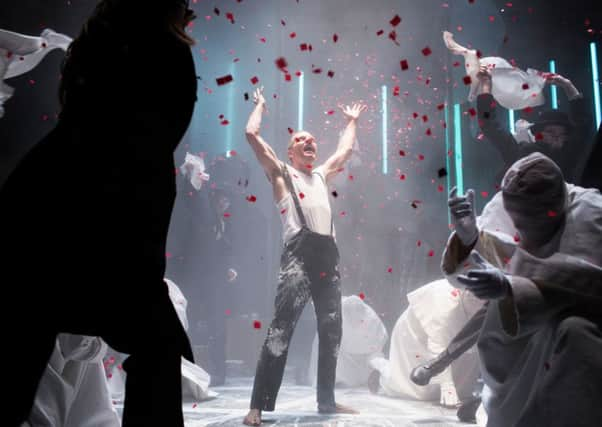Review: Visceral and seedy delights with Dr Faustus at the RSC


It seems ironic, when discussing a play that sneers at dichotomies, to ponder how much of this remarkable feast is for the for the head and how much for the heart. It is certainly hugely impressive, yet the suspicion remains that the impression will be left on the senses, rather than the soul.
This is not necessarily a criticism, for so much here is simply top-class theatre. The production opens with two actors lighting matches; whoever’s is the first to extinguish pays Faustus, the other, Mephistophilis. It is pure chance. A gimmick? Perhaps, but a good one, and in keeping with the production, in which the diabolical is human and the human diabolical.
Advertisement
Hide AdAdvertisement
Hide AdThe tale of Dr Faustus, who, bored with earthly knowledge and tame spiritual musings, sells his soul to the devil in return for limitless power, was well established by the time Christopher Marlowe wrote this play around 400 years ago. It remains a compelling idea, the ultimate temptation: would you do it? Without giving too much away, the advice is “don’t”, although you may have some sorts of fun along the way should you take up Satan’s offer.
This particular evening, Oliver Ryan played Faustus, and did so with an incantatory bite from the outset. Jittery in delivery and demeanour, he seemed every inch a man for whom the known world had exhausted its delights, and for whom the charms of the dark would prove irresistible.
Before long, he convinces his friends of the path he must follow; and, on what starts out as a spare, scruffy set, like a corner of a forgotten warehouse, strewn with cardboard boxes, he gets to work with a tin and a brush and paints a pentagram on the floor. Fires are lit, chants chanted, and lo, after much eerie cacophony, here is Mephistophilis (Sandy Grierson), looking and acting like he’s just stepped out of a bad 1990s party in Tenerife, white-suited and shirtless and gooeyly suave.
There begins a series of encounters with beings temporal, demonic and mythic. These are sometimes bizarre, sometimes seedy, sometimes funny. They are, at all times, staged with a remarkable artistic vision and thunderous conviction. As the stage evolves, the spectacle is astonishing, not so much for its scale as its collision of styles: dangling striplights, shimmering walls of beads of the sort favoured by pretentious provincial nightclubs, art studio detritus, paint, petals. The Seven Deadly Sins appear, personified, and sing with delicious sleaze; Faustus’s demonic friends chatter and skuttle and jiggle weirdly (David Bowie’s recent Blackstar video comes to mind); Lucifer (Eleanor Wyld) is icily matter-of-fact, never falling either into the temptress or dominatrix stereotype.
Advertisement